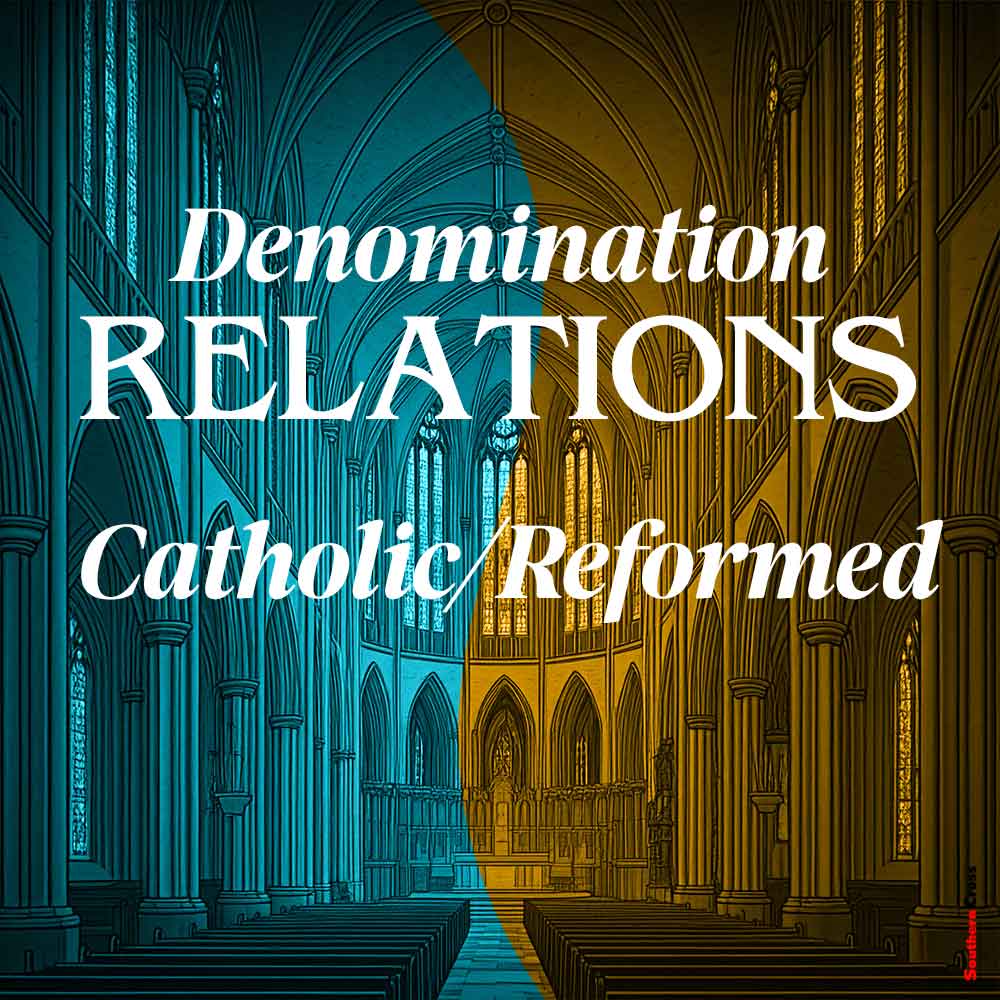Denomination Relations: Reformed

In our ongoing series, “Denomination Relations”, Jason Scott explores the history, shared beliefs, and differences between Catholics and other Christian denominations. This week, he turns his attention to Calvinists.
Where Do Calvinists Come From?
Calvinism, also known as Reformed Christianity, originated from the teachings of John Calvin (1509-64) during the 16th-century Reformation. Calvin, a French theologian based in Geneva, Switzerland, sought to reform the Church based on his interpretation of Scripture. His influence spread rapidly across Europe, particularly in Switzerland and the Netherlands, and later to North America, shaping the religious landscape of regions like New England.
The core of Calvinist theology is encapsulated in the acronym TULIP, which stands for Total Depravity, Unconditional Election, Limited Atonement, Irresistible Grace, and Perseverance of the Saints. These doctrines have shaped the identity of Calvinist churches worldwide, which are known for their emphasis on the sovereignty of God.
Where Do We Agree?
As Catholics, we share fundamental beliefs with Calvinists: the Trinity, Christ’s divinity and humanity, and the resurrection. We both affirm the Nicene and Apostles’ Creeds, which unite us in ecumenical gatherings. Baptism is central to both our traditions, though our understanding of the Eucharist differs significantly.
Where Do We Disagree?
From a Catholic perspective, the key disagreements with Calvinists are clear. Calvinists prioritise the authority of Scripture over the Pope, which we see as essential for the unity and guidance of the Church. Their doctrine of predestination, encapsulated in the belief in unconditional election, contrasts sharply with the Catholic emphasis on free will and human cooperation in salvation.
On the sacraments, Calvinists view the Lord’s Supper as a symbolic act, commemorating Christ’s sacrifice, while we believe in the real presence of Christ in the Eucharist through transubstantiation. This is a fundamental difference.
Furthermore, Calvinist church governance often follows a presbyterian or congregational model, where authority is distributed among clergy and laity, contrasting with the hierarchical structure of the Catholic Church, which emphasises the authority of the Pope and bishops.
Recent Steps Towards Unity
Despite these differences, progress has been made. The Second Vatican Council’s Decree on Ecumenism (Unitatis Redintegratio) opened doors for dialogue with Reformed churches. More recently, joint statements and collaborative projects have highlighted areas of agreement and mutual respect. For instance, the 1999 Joint Declaration on the Doctrine of Justification between Lutherans and Catholics has been a model for similar dialogues with Calvinists.
The Reformed-Catholic Dialogue has been crucial in this journey, producing documents that explore our theological commonalities and differences. These efforts reflect our shared commitment to unity and the healing of centuries-old divisions.
As Catholics, we are committed to reuniting Christians and restoring full communion within the one true Church, guided by the Holy Spirit, to heal the wounds of centuries-old divisions.
Join us next week as we delve into our relationship with the Baptists. And as always, trust the plan.
- How a Lie Killed a Saint: St Oliver Plunkett - March 2, 2026
- What the Pope Said This Week - February 15, 2026
- How the Vatican Became Its Own Country: The Lateran Treaty and the “Prisoner of the Vatican” - February 11, 2026





